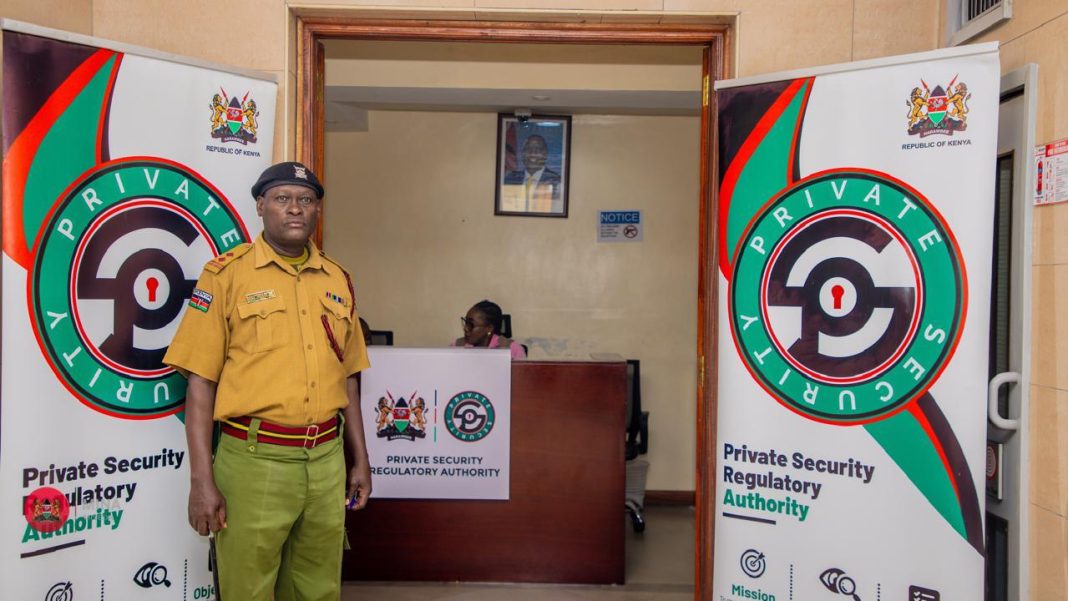By Sandra Blessing
The Private Security Regulatory Authority will on this Friday 21st November 2025 engage the public in a countrywide public participation on the Private Security Draft Regulations 2025.
The countrywide meetings have been zoned into eight, with North Eastern forum to be held at Garissa, Government Guest House, while Lower Eastern will be at Machakos Social and Central will be held at Nyeri Cultural Centre.
For the Coastal region, the meeting venue will be at Tononoka Social Hall, while for North Rift, the venue is at Eldoret Multipurpose Hall, and for Nyanza it will be at Le Savannah Hotel in Kisumu, and for Western Kenya it will be at Kakamega Social Hall.
“In Nairobi, the public participation forum will be held on 24th November 2025 at the Kenyatta International Convention Centre (KICC).
We invite all stakeholders and members of the public to attend and share their views. Your voice matters in shaping the future of the private security in Kenya,” read the statement.
The Kenyan government has enacted the Private Security (General) Regulations, 2025, under the Private Security Regulation Act, Cap. 207, to strengthen oversight, accountability and professionalism within the private security sector. The regulations, issued by the Cabinet Secretary for Interior and National Administration, set out detailed requirements for registration, licensing, employment, training and operations of private security service providers.
Under the new regulations, individual and corporate private security providers must register with the Private Security Regulatory Authority (PSRA) and obtain valid licences. Applications require proof of identity, compliance with tax obligations, insurance coverage including WIBA and public liability, police clearance certificates, audited financial accounts and a full inventory of uniforms, equipment and vehicles. Registrants are required to pay prescribed registration and annual fees, with penalties for late renewal.
Employment and training standards are rigorously defined. Private security firms must vet employees, verify their training and employment history, and ensure all personnel undergo mandatory annual security training. Officers are required to wear legibly marked nameplates and uniforms, which must comply with specifications including distinctive badges, headgear and heavy-duty belts. Firms must also provide necessary safety gear such as reflective vests, torches and defence equipment.
The regulations prescribe approved tools and equipment, including CCTV systems, alarms, patrol vehicles, armoured cash transit vehicles and specialised devices for locks and keys, with mandatory annual calibration and inspection by the Authority. Branding of vehicles, equipment and premises is strictly controlled to prevent misuse of law enforcement identifiers.
By establishing these standards, the government aims to professionalise the private security industry, enhance public safety and ensure accountability. The regulations also provide for community safeguards, including vetting prospective employees and ensuring separate resources for firms engaged in other businesses.
The Private Security (General) Regulations, 2025, mark a significant step towards regulating a sector that plays a critical role in national security, balancing operational flexibility with legal and ethical oversight.




